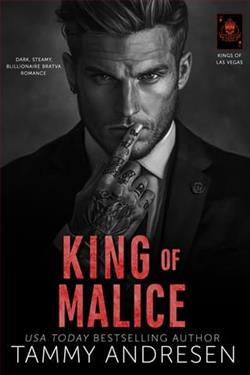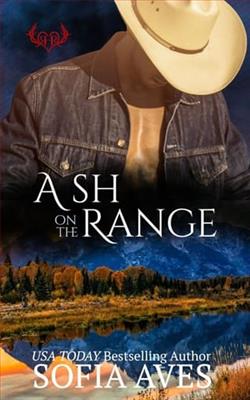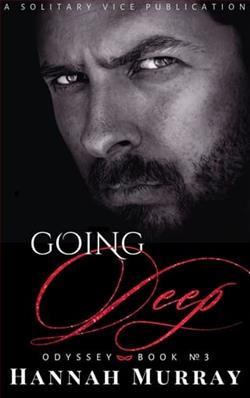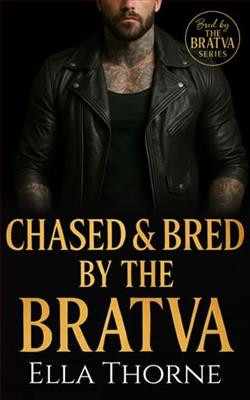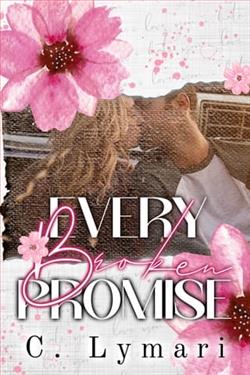Page 44 of The Road to Avalon
Our warriors, who’d maybe been expecting to sample the delights of the city for a day or two, rode down the street behind us with glum faces and eyes red-rimmed from lack of sleep. Probably they’d all been out drinking last night. Llawfrodedd was the only man amongst them who looked like he’d had a good night’s sleep.
Our road took us south through the lower-lying wetlands, with the mountains that would one day be considered Welsh on our right, and into the vast swathe of forest that covered central Britain. This was dangerous country rife with brigands, and I more than once found myself wishing we’d brought twice the number of warriors with us, something I didn’t share with Merlin and Archfedd. Although Merlin was probably thinking the same.
Some time after midday, we approached the little, once Roman, town of Breguoin. This had been the scene of a bitter battle against Irish raiders and was where Llawfrodedd had spent his childhood as the son of a metal worker. It sat in open country on a rise above a small river, with dark forest fringing its fields to the east and hills to the west. Its tumbledown walls, and the houses within them that were a mix of patched-up Roman dwellings and newer wattle and daub, had seen no improvement since last I’d passed this way.
“Could we stop to eat here?” Archfedd asked me, as we drew near.
The day was warm, and we’d made good progress since leaving Viroconium, so I nodded, and we rode in at the northern gates between the low walls of the ruined towers and made our way down the main street toward the center. There was the little thatched church where I’d seen the raiding Irish warriors kill the village priest, there the small fields turned over to agriculture where once houses had crowded. Breguoin, like so many old Roman towns, had become a shadow of its former self, gradually dying in the failing light of Rome.
The people came out warily to greet us clutching weapons in their hands– hayforks, clubs, pokers. No force of armed warriors is ever a welcome sight, and we were no different. For all they knew we’d come to rob them.
I swung down from my saddle near the well in the little square– a shabby apology for a forum, but who cared? The Roman masters who’d built it were long gone, and, in their stead, small market stalls proliferated. “We come in peace,” I called, my voice carrying to the people, arrested in their daily bartering and now huddled behind the stalls as though believing this action afforded them safety. “All we require is water for our horses.”
Our skins of cider would do us– no way were any of us risking the water in this well, even if it suited our horses.
One of the older men pushed a young lad forward. He edged over to the well and set his hands on the winding mechanism. Keeping a wary eye on us, he began to wind the handle to bring up the bucket of water.
No one else moved, as though they suspected I’d lied, and it was all a ruse to lull them into a false sense of security. They continued to watch with ill-disguised suspicion from their inadequate positions of perceived safety. In the main street, a few more, drawn by curiosity, emerged from houses to edge their way closer to the square. All of them armed in some way.
Llawfrodedd slid down from his horse and came to stand beside me and survey our audience. “Who is the headman here?” He’d raised his voice to ring out loud and clear around the square.
No one stepped forward. He cleared his throat. “I seek Bredon the baker and his wife, Ailidh.”
A mutter ran round the assembled, half-hidden people. I’d have been surprised indeed if any of them recognized the noble young warrior standing before them as being one and the same with the scrawny, under-nourished boy who’d left them seven years ago.
A door behind us banged open, and I turned my head. A tall, tonsured, gray-haired figure emerged from the thatched porch of the tiny church, brown-robed and leaning heavily on a long, knobbly staff.
Llawfrodedd turned to face him, a smile lighting his face.
“Is this the boy I see before me?” the priest asked, staring at Llawfrodedd out of kind eyes, his mouth widening in a smile to match Llawfrodedd’s. “Returned as the man I dared to dream he could become?” He had a deep, melodious and well-educated voice.
All our warriors’ heads turned in curiosity. A good few knew Llawfrodedd’s story.
Tears formed in Llawfrodedd’s honest gray eyes. “Father Aloysius.” Three long strides and he dropped to his knees in front of the old man, pulling off his helmet in a hurry and bowing his head. “I am indeed the boy you set upon the road to a new life.”
Father Aloysius put a bony hand on Llawfrodedd’s sweat-dampened hair. “A blessing on you, my son, and all who ride with you. You come to seek your sister?”
Without rising, Llawfrodedd nodded. “I ride with the Queen of Dumnonia. I am her sworn warrior. We are on a vital mission, but she allowed us to stop here. For me. I need, after all these years, to know my sister is well.”
Father Aloysius’s eyes moved to take me in, standing there in my boy’s clothes and armor, with my sweaty, red face, then flicked to Archfedd by my side, and disapproval clouded his face for a moment. Probably unused to seeing women in not just men’s attire, but armor, as well. “You are most welcome here in Breguoin, my lady.” He made a stiff bow, leaning more heavily on his staff.
I returned his bow. “Thank you, Father.” And so did Archfedd.
Merlin, who never liked priests, had moved away to allow his horse to drink from the trough the boy was busy filling, a long, stone affair that could have doubled as a coffin, and our men were taking off their helmets. The fresh water slopped into the trough, splashing the flagstones at its feet as the sun beat down on the back of my neck. How refreshing it would be to dunk my head in that trough then let the water run down my hot back.
“I’ll send someone for your sister,” Father Aloysius said to Llawfrodedd, taking his hands and pulling him to his feet.
He nodded to a lanky boy in tattered, long-outgrown clothes who’d been hovering nearby with his mouth hanging open. A few low words, and the boy galloped away down the main street toward the southern gateway.
“Ever feel as though you’re an exhibit at a freak show?” Archfedd whispered, moving closer to me. “They’re looking at us as though they’ve never seen a queen before.”
I flashed a smile. “But they have indeed. And it was this one.” I tapped my chest. “Your father fought a battle here, and it was up to me and the men I was leading to rescue the inhabitants before the Irish found them. We evacuated them to safety up there in the forest.” I pointed. “There’ll be men here– women as well– who’ll remember me, I don’t doubt. It’s a long time ago, now. You were only a baby.”
“I know.” She smiled. “Llawfrodedd told me some of that a long time ago. This ishistown.” She glanced about herself. “Village, maybe. It’s so small. His father died from burns he got while working for the blacksmith. Forging swords for Custennin’s father.” She leaned in closer. “For a long time, he’s wanted to find the little sister he had to leave behind. She was only five, he told me, so he couldn’t take her with him when he set off for Din Cadan. That priest,” she nodded to Father Aloysius, “found her a family who had no daughter of their own, and sorely wanted one.”
Until now, I’d quite forgotten he’d had the one surviving sister. She’d be about twelve.
A door in one of the houses down the street banged open, and a woman and a smaller figure, a girl, emerged onto the cobbles. For a moment the child stood staring toward the square before she burst into a headlong run. Her booted feet slapped on the road surface, her long mousy braids bounced behind her, and as she drew nearer, the look of joy on her face was enough to bring a lump to my throat.










